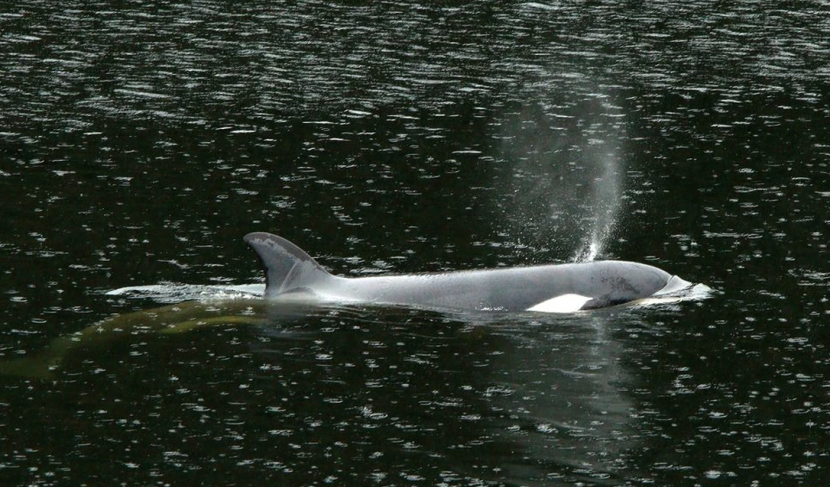
A clever orca calf, stranded in a remote lagoon in British Columbia, managed to outmaneuver a 50-member rescue team who used boats, divers, nets and advanced underwater detection equipment to try and save her life.
Despite the unsuccessful attempt Friday, rescue officials are considering other methods for capturing and transporting the two-year-old female, including using a seine net and a larger vessel.
"This is a very smart animal, and we're going to have to look at other options," Paul Cottrell, Fisheries Department marine mammal coordinator, told the Vancouver Sun.
Rescuers said they were planning to net the orca calf in the lagoon's deep waters instead of using the net to guide the animal into a large sling in the shallows, as they did on Friday.
However, Cottrell noted that this strategy poses risks to both the calf and the rescuers in the water — but they are keeping all options open.
The team tried to guide the calf to a shallow area of the three-kilometer (almost two-mile) lagoon so she could be placed in a sling, lifted onto a transport vehicle, and taken to the open ocean.
An indigenous war canoe was also in the water, with paddlers singing and maintaining a steady drum beat.
The Ehattesaht First Nation named the young orca "kwiisahi?is" (Brave Little Hunter) after she and her mother entered the tidal lagoon off northwest Vancouver Island through a shallow channel last month.
Sadly, the pregnant mother got stranded on a rocky beach at low tide and died.
Cottrell is hoping that the calf will be freed and might be able to reunite with its family of Bigg's killer whales.
"There's a very high likelihood that in a short amount of time there will be some sort of interaction or reunion, and that's what we're hoping for," he said.
© 2026 HNGN, All rights reserved. Do not reproduce without permission.









